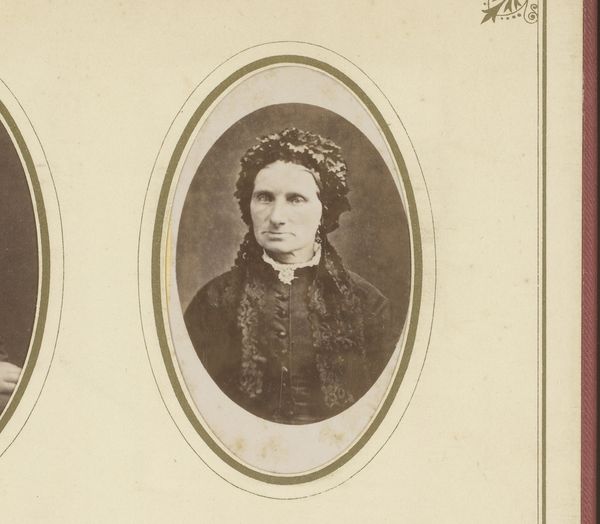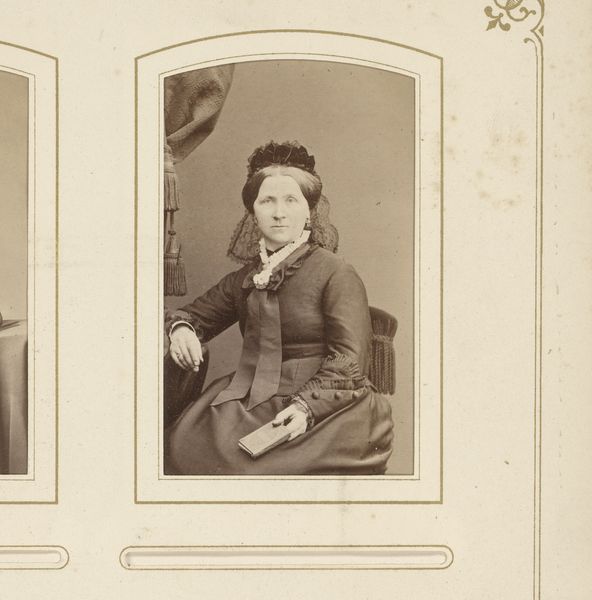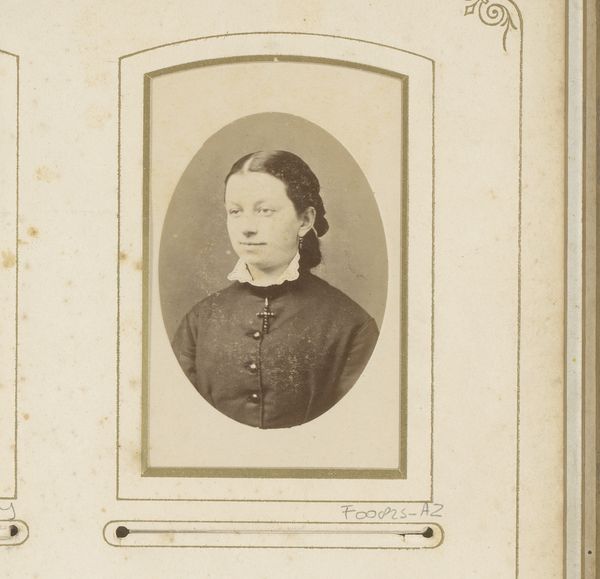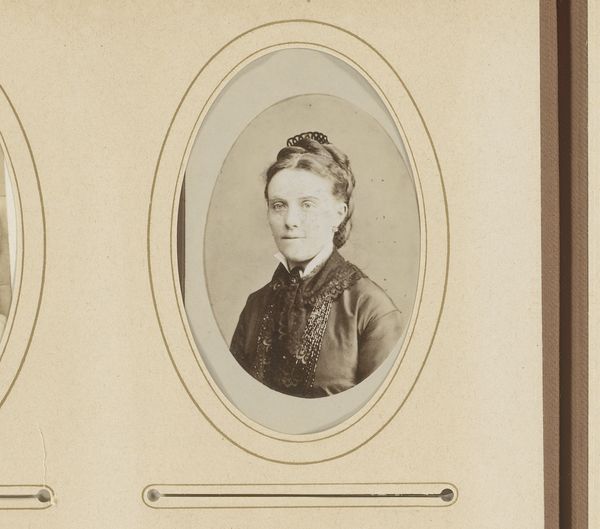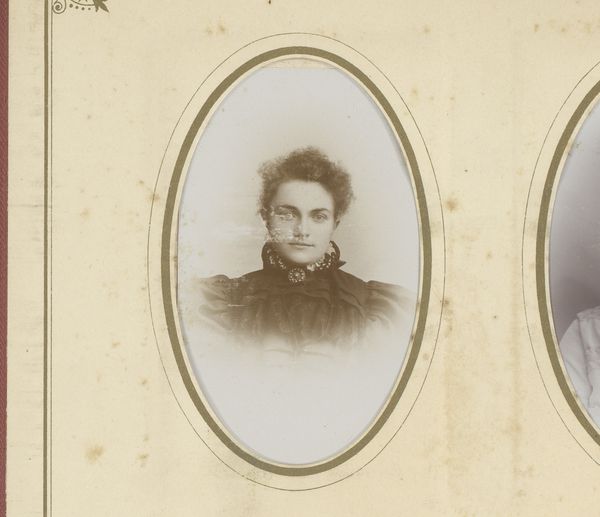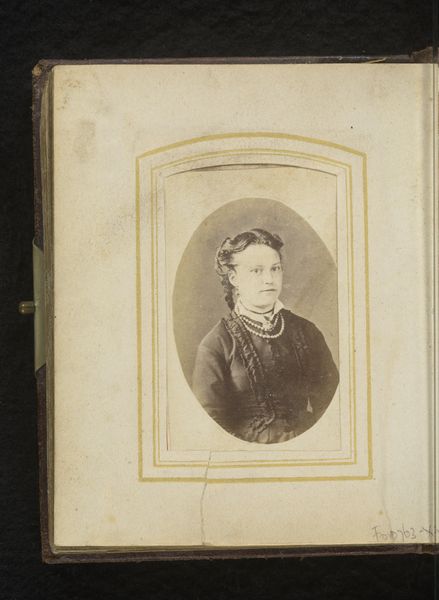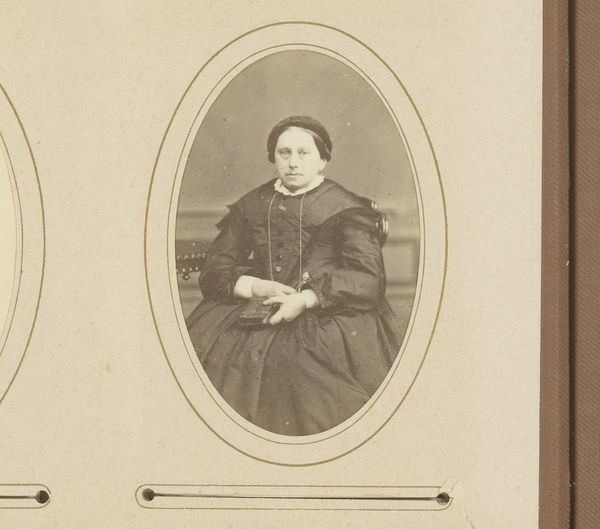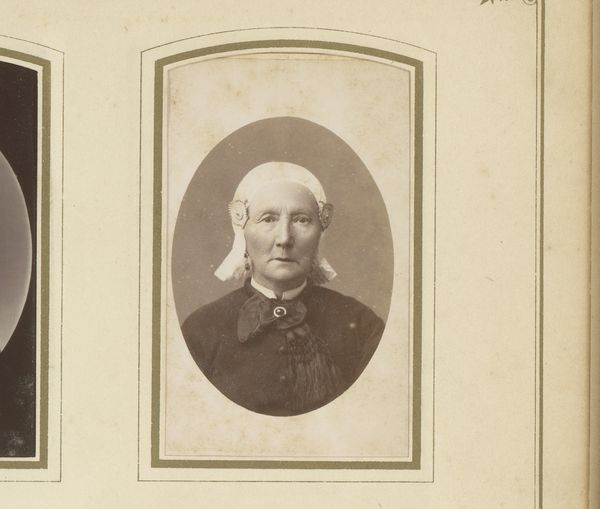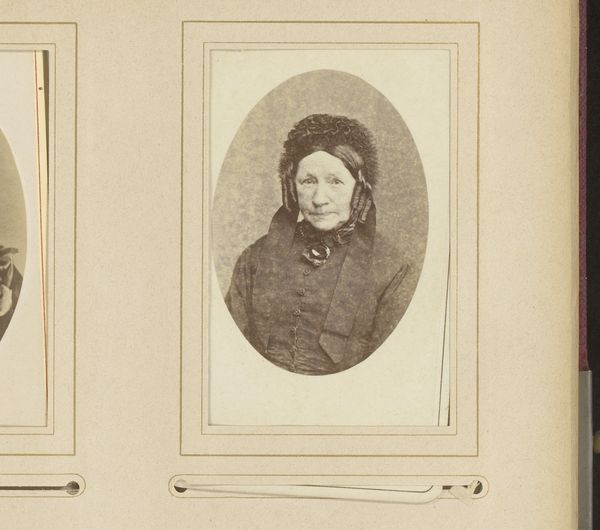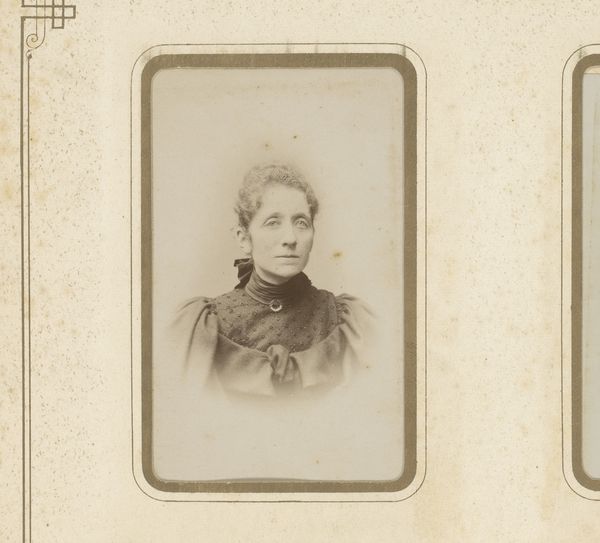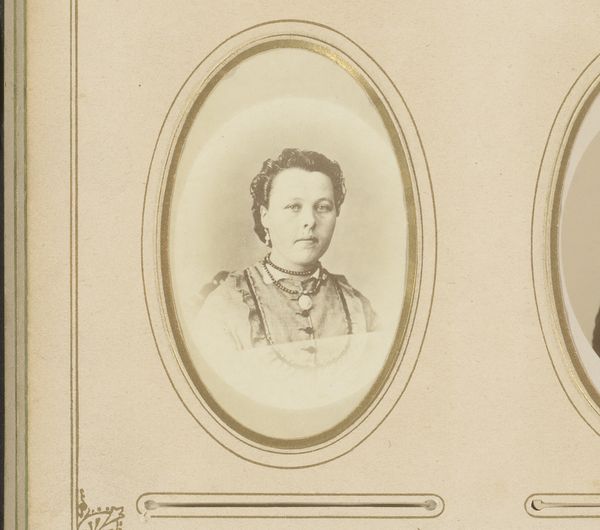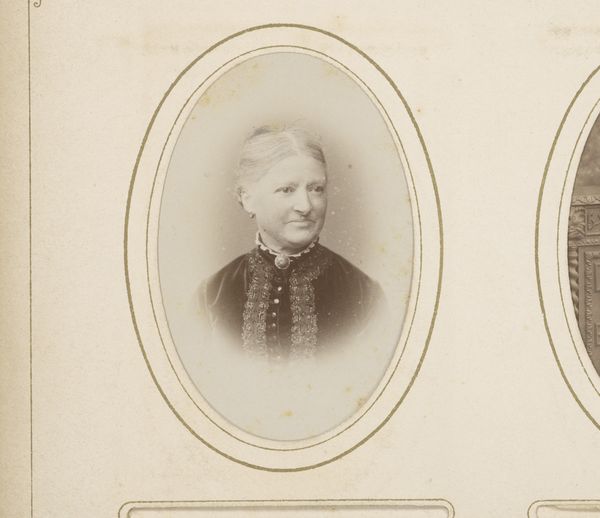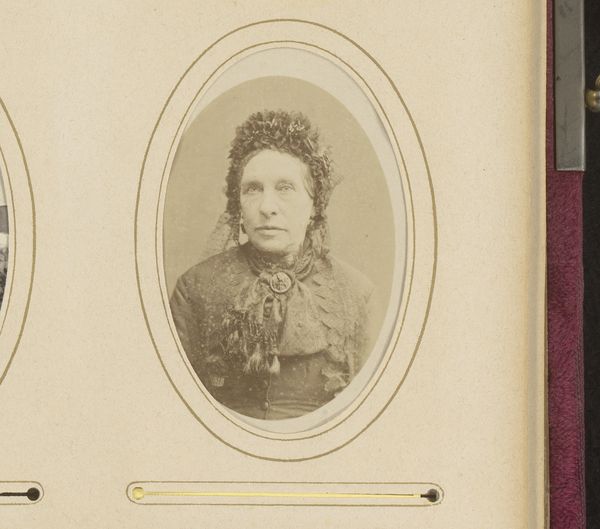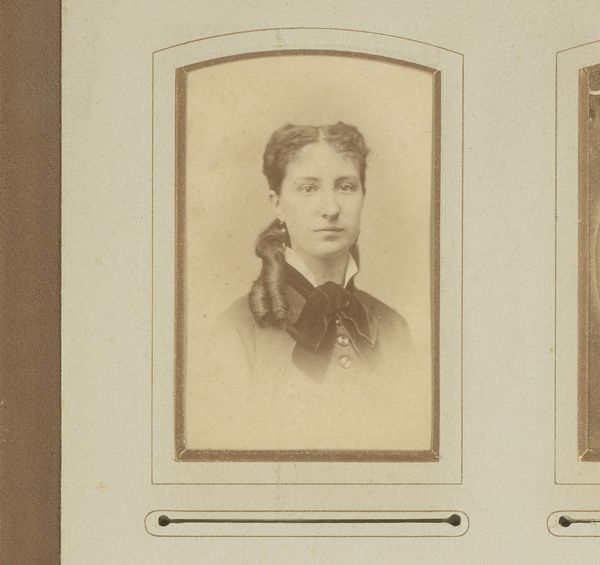
photography, albumen-print
#
portrait
#
photography
#
historical photography
#
19th century
#
albumen-print
Dimensions: height 87 mm, width 53 mm
Copyright: Rijks Museum: Open Domain
Editor: This albumen print, a portrait of a woman with a bonnet, was created by Roelof Hinderikus Christiaan Karsses sometime between 1860 and 1900. The tones give the portrait a very austere feel. How should we understand it? Curator: These 19th-century portraits are so fascinating. They are much more than just pictures. Consider the rise of photography during this period and what it meant for social representation. This wasn’t just about capturing a likeness, but about establishing and broadcasting social status. Editor: You mean, photography as a form of social currency? Curator: Precisely. Look at the details: the lace bonnet, the ornate jewelry, the stiff posture. These are deliberate choices aimed at projecting respectability and perhaps even a certain level of affluence. Editor: It’s interesting to think about how accessible this image would have been back then. Would it have been widely circulated? Curator: Probably not widely, no. Albumen prints like this were often part of family albums, so primarily for private consumption. Their existence reinforces a societal focus on preserving family history, or, perhaps, crafting a desired narrative about the family for posterity. The museum context now radically changes how we view it. Editor: So, its current role in the museum elevates this woman's status, when perhaps in the past, it only impacted a very specific audience? Curator: Exactly. Museums play a role in the social construction of importance, deciding whose stories are told and remembered. Editor: That really changes how I see this portrait. It’s not just about the individual, but the whole structure surrounding its creation and preservation. Thanks! Curator: Indeed! It reveals how deeply intertwined art and socio-political forces really are, then and now.
Comments
No comments
Be the first to comment and join the conversation on the ultimate creative platform.
